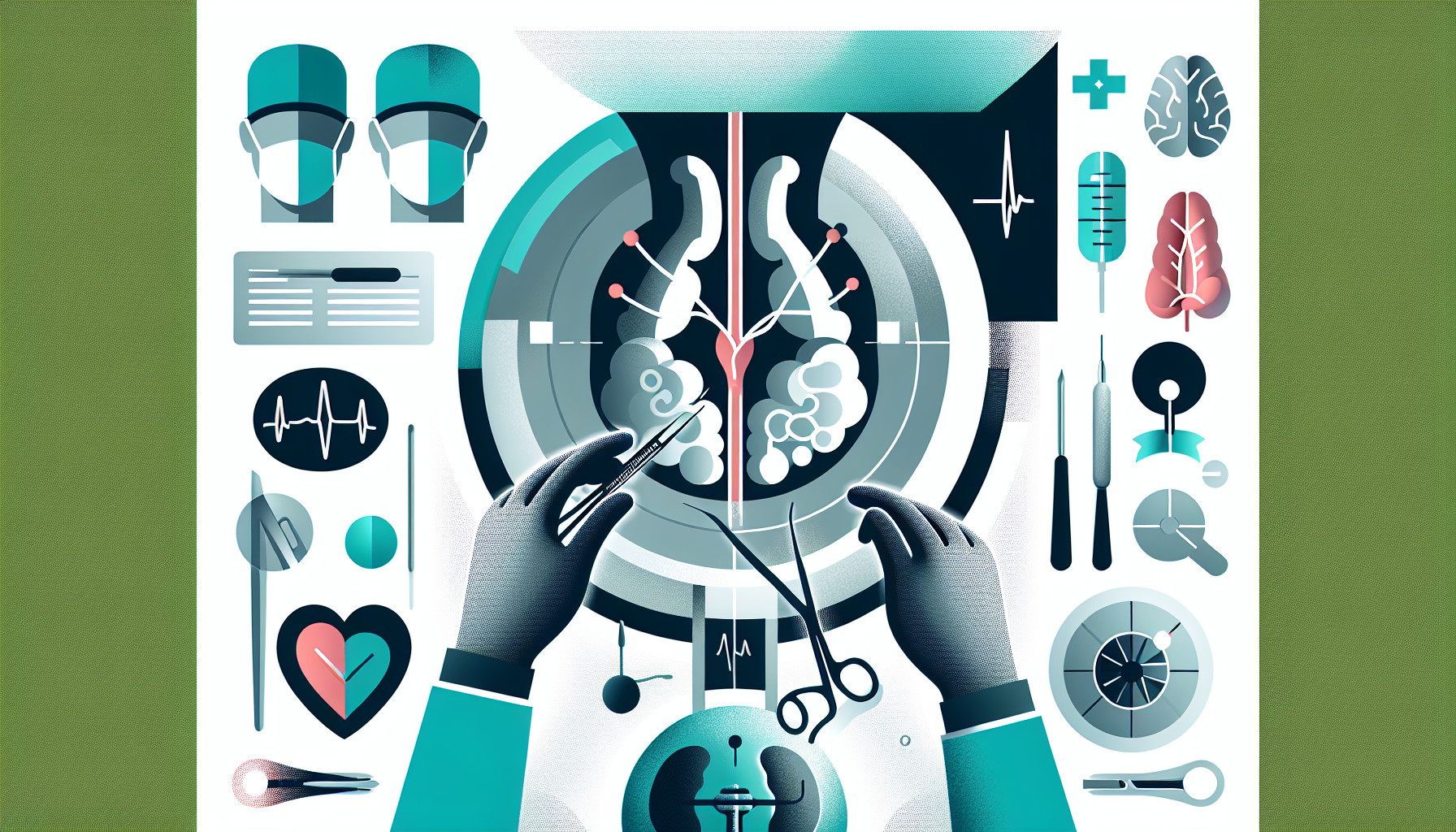Our Summary
This research paper discusses the management protocols for severe erectile dysfunction, focusing on penile prostheses as the last treatment option. The main concern is the risk of infection that comes with the implantation of these devices. The paper aims to compile factors that can help in preventing infections and make penile implantation safer and more reliable.
The paper reviews various elements of the surgery process (pre-operative, intra-operative, and post-operative) that are associated with the risk of infection, and discusses measures that can be taken to avoid it. Recent discoveries include the use of coated implants to reduce infection rates, and the recommendation to use chlorhexidine-based solutions instead of iodine for preoperative skin preparations. It’s also mentioned that the choice of surgical approach doesn’t seem to affect infection rates.
The paper also notes that there have been significant changes in the types of bacteria found on implants in recent years. However, there isn’t enough evidence to recommend specific solutions for cleaning the implant area during salvage or revision surgery. The authors also highlight the importance of controlling blood sugar levels before surgery, although there is a lack of clear guidelines on the exact levels that should be targeted.
The paper concludes that various factors, such as how the surgical site is prepared, the presence of other health conditions or previous surgeries, the length of the surgery, and any additional procedures carried out during surgery can all impact the outcome of penile prosthetic surgery.
FAQs
- What are the main concerns with penile implant surgery as discussed in the research paper?
- What are some of the new discoveries and recommendations for reducing infection rates in penile implant surgery?
- How do factors like surgical site preparation, previous surgeries, and additional procedures during surgery impact the outcome of penile prosthetic surgery?
Doctor’s Tip
Overall, the doctor may advise the patient to follow all pre and post-operative instructions carefully to reduce the risk of infection. They may also recommend maintaining good hygiene, quitting smoking, controlling blood sugar levels, and discussing any concerns or questions with their healthcare provider. Additionally, the doctor may stress the importance of regular follow-up appointments to monitor the implant and ensure proper healing.
Suitable For
In general, patients who are recommended for penile implant surgery typically have severe erectile dysfunction that has not responded to other treatments such as oral medications, injections, or vacuum devices. These patients may have underlying medical conditions that make other treatments ineffective or unsafe, or they may simply prefer the convenience and reliability of a penile implant.
Patients who are candidates for penile implant surgery may include those with conditions such as diabetes, hypertension, or prostate cancer, as well as those who have had previous surgeries or trauma that have damaged the blood vessels or nerves in the penis. Additionally, patients who have psychological issues that prevent them from achieving or maintaining an erection may also benefit from a penile implant.
It is important for patients considering penile implant surgery to discuss their options with a urologist or other healthcare provider who specializes in erectile dysfunction. The decision to undergo surgery should be based on a thorough evaluation of the patient’s medical history, risk factors for infection, and overall health status. Additionally, patients should be aware of the potential risks and benefits of the procedure, as well as alternative treatments that may be available.
Timeline
Before penile implant surgery, a patient typically undergoes a thorough evaluation by a urologist to determine if they are a suitable candidate for the procedure. This may include physical exams, blood tests, and possibly psychological evaluations. The patient will also receive counseling on the risks and benefits of the surgery.
On the day of the surgery, the patient will be admitted to the hospital or surgical center and undergo anesthesia. The surgery itself usually takes a few hours and involves the implantation of the prosthetic device. After the surgery, the patient will be monitored in the recovery room before being discharged home.
After penile implant surgery, the patient will need to follow post-operative care instructions provided by their healthcare provider. This may include taking antibiotics to prevent infection, avoiding strenuous activities, and keeping the surgical site clean and dry. The patient will also have follow-up appointments to monitor their recovery and ensure the implant is functioning properly.
Overall, the timeline for a patient before and after penile implant surgery involves pre-operative evaluations and counseling, the surgical procedure itself, and post-operative care and follow-up appointments to ensure a successful outcome.
What to Ask Your Doctor
Questions a patient should ask their doctor about penile implant surgery based on this research paper:
- What measures will be taken to prevent infections during the surgery process?
- Will a coated implant be used to reduce the risk of infection?
- What type of solution will be used for preoperative skin preparations - chlorhexidine-based or iodine?
- How will blood sugar levels be controlled before surgery to reduce the risk of infection?
- Are there any specific cleaning solutions recommended for the implant area during salvage or revision surgery?
- How will the surgical site be prepared to minimize the risk of infection?
- How will the presence of other health conditions or previous surgeries impact the outcome of the surgery?
- How long is the surgery expected to last, and how does this affect the risk of infection?
- Are there any additional procedures that will be carried out during surgery that could impact the risk of infection?
- What post-operative care measures should be followed to reduce the chances of infection?
Reference
Authors: Carvajal A, Henry GD. Journal: Curr Urol Rep. 2022 May;23(5):75-81. doi: 10.1007/s11934-022-01090-0. Epub 2022 Mar 5. PMID: 35247139
